It’s early. About 7am. I woke up at 4:30 to the cry of roosters and the rustle of feet as our hosts began their day. We’re in the village of Ban Donkham somewhere deep in the Jungle between Luang Namtha and Huay Xai, both sizeable one-road towns in Northern Laos. Two kilometers up a dusty, winding track is the one store, fifteen house village of Ban Donchai straddling the lone paved road cutting through the forested interior. Neither town shows up on Google Maps.
We’re here doing a homestay at the home of Mr. Boulean and his family because this is the turn-off to the national park where the Gibbon Experience lies.
Much of Ban Donkham is beautiful. A single looped dirt road threads through the hillside and river flat of the village passing rice paddies, small gardens, and offering glimpses of the banana plantation across the water. The houses are mostly made of wood, perched on stilts, and showing a wide range of size, upkeep, building materials and relative wealth across the 250 odd residents. Every 3-4 houses has a satellite dish and motorbikes are scattered around town in relative abundance along with the odd car or two. Large round platters of hot peppers sit drying in the sun, many perched on the hot tin roof of the lone bathroom, a single squat toilet donated in 2009 by a Vancouver bank and kept meticulously clean by the villagers.
I say to Mica that it feels prosperous, relatively speaking, and feels like it might be modernizing rapidly. She doesn’t completely refute the point but I can tell she disagrees, and the absolute poverty so obviously apparent alongside the beauty speaks clearly enough. On later visits to Mekong river villages we will continue to talk about the emotions and feelings of responsibility that visiting these places evokes within us.
That night we learn from Mr. Boulean that the people here are “not Lao,” by which he means not ethnically of the Laos ethnic family. Later we learn that Laos is the most ethnically diverse country in the region with over 50 ethnic groups, and as in so many places, the discrimination and integration of the various tribes is ongoing:
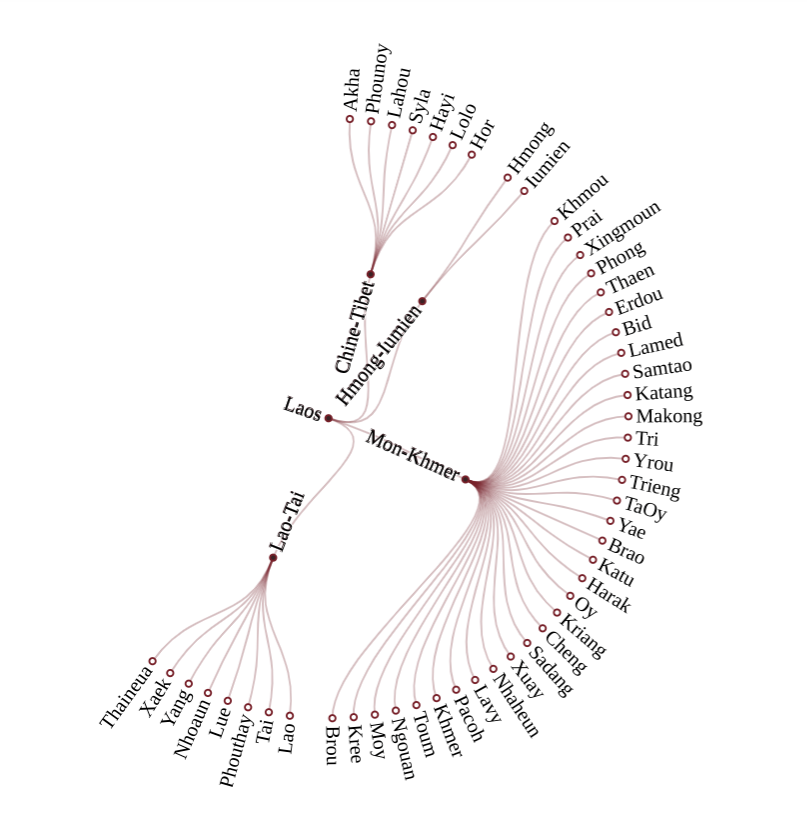
Back at the house we realize that Mr. Boulean’s family is one of the town’s wealthiest residents. His home is on the first piece of land you see from the road into town, steps from the lone toilet and perched beautifully against a gently lesloping hillside with a view across town to the hills opposite the river.
The house has space for his two trucks and a rice storage shed underneath, with stacks of neatly corded wood lying in wait for future cookfires. Up the stairs is a wood balcony with a bamboo mat spread out on the floor and a view of town. This is where the family likely sits most evenings on simple three inch high wood benches (but which they have ceded to us for the duration of our stay).
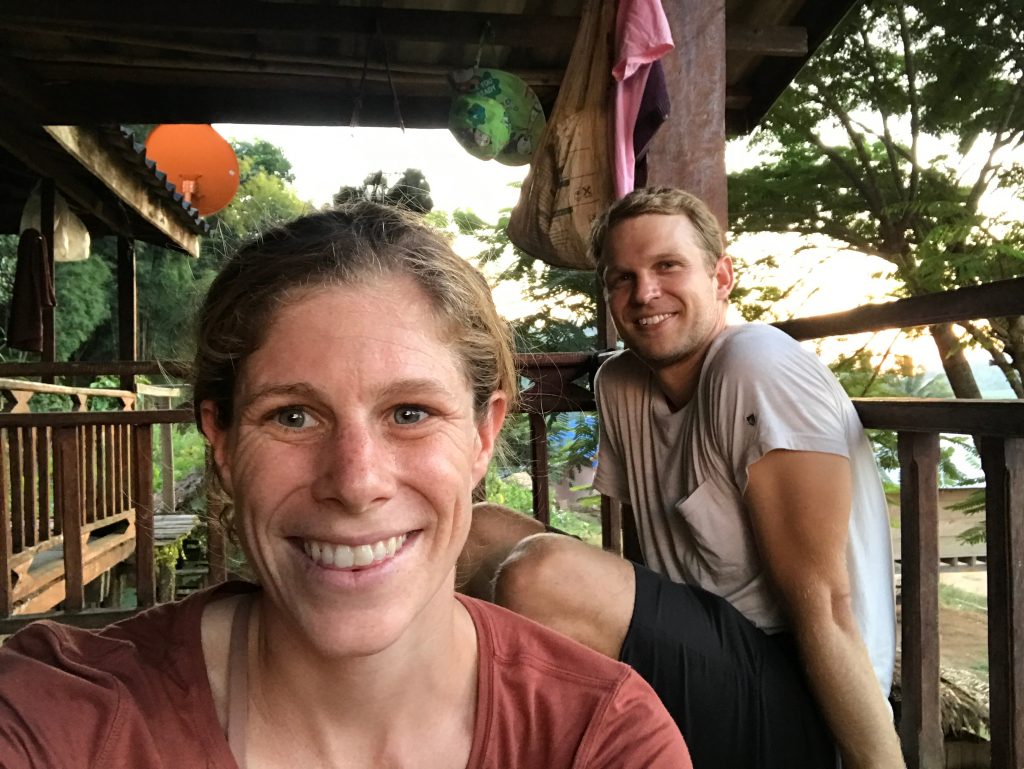
From here there are two doors. One runs to a kitchen with an open fireplace and a space off the balcony to throw food scraps down to the chickens roaming around their coop below (good design that). The other door branches off to the main room of the house, a large somewhat stark space where the exposed 2x4s anchoring the walls offering the only storage. Together a small ~22 inch 1980s style color TV and a fridge dominate an entire wall while another corner is covered with photos of the family tacked into the wood evidencing a certain lovely pride. The last wall has two curtained off doorways heading to what we assume are small bedroom spaces for the two generations of adults living here.
In the evening Mr. Boulean’s grandkids along with several neighbors will sit here on the floor watching dubbed comics. Scooby doo and a Thai cartoon we don’t recognize dominate. In between the show are commercials loudly peddling skin lightening cream to make yourself more attractive. I want to tell the beautiful dark-brown 7 year old girls to ignore what they’re seeing but of course I don’t know how.
That night we bunk with the kids. We are in one corner, mattresses placed over reed mats lying directly on the wood floor. The mattress is thin, evoking our nights on futons and Tatami mats in Japan. A mosquito net draped overhead offers both protection and a measure of privacy. The kids occupy a far corner in a similar setup. Lights out is sun-down more or less.
I sleep soundly, only awakened by the crows of roosters and the whisper of human feet beginning their day. It is 4:30. By 5 the kitchen, just on the other side of the wood planks I am lying next to, is humming and the occasional whiff of wood smoke filters through. I feign sleep for another hour simply listening to the household move around in the pre-dawn darkness. I don’t get up partly because I feel awkward, not wanting to sit on their balcony occupying space and not contributing as the family goes about their Sunday routine.
Eventually of course we stir and are served a lovely breakfast of eggs, rice, and a tasty curry. I find myself wishing we had eaten our meals with the family not alone on their balcony, but I am grateful nonetheless for their generosity and care as hosts.
We end our stay with a walk through the village with Mr. Boulean before hopping in the now empty flatbed of the rice truck we arrived to go back to the only store on the main road. There we wait to join the tourist specific trip of foreigners that is the Gibbon Experience.
Once we’re picked up I find myself grateful to be back in a straightforward cash-for-experience arrangement, yet I am somewhat ashamed at feeling this way. The homestay was lovely, physically quite comfortable, and yet there was an element of discomfort that we grappled with while there.
Perhaps it was simply the remnants of 24 hours struggling to communicate our gratitude for opening their home across such a robust language barrier. Or perhaps this discomfort was something I carried with me to Ban Donkham, and something I failed to leave behind. I think of Philip making friends in the villages of Tanzania and feel far away from that ability. Do I need more travel to get at this?
I don’t know yet, but whatever the case may be, as I am zipping through the Jungle later that day I know that this home stay was a memory I’ll carry with me and digest for a long time to come.

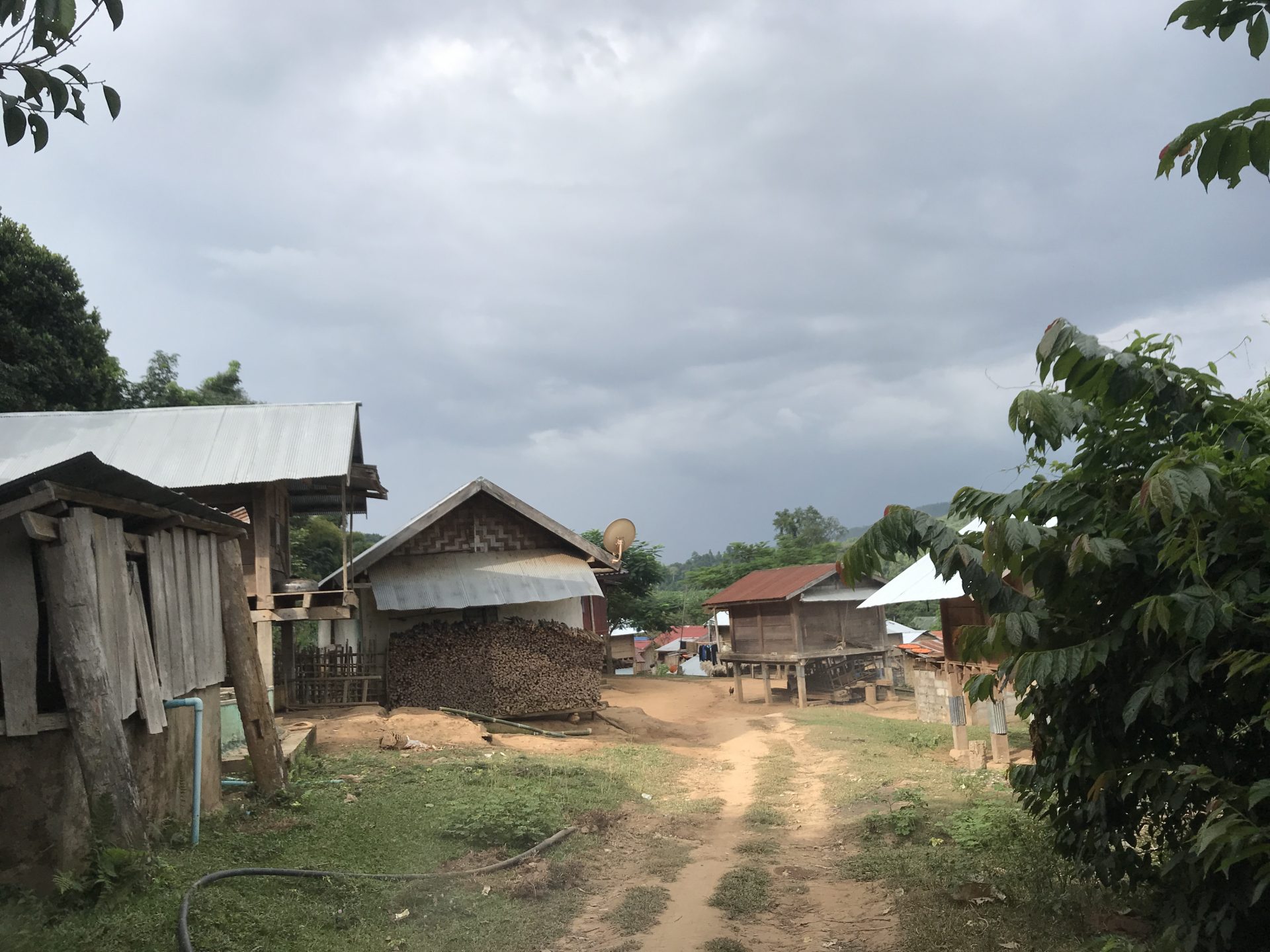
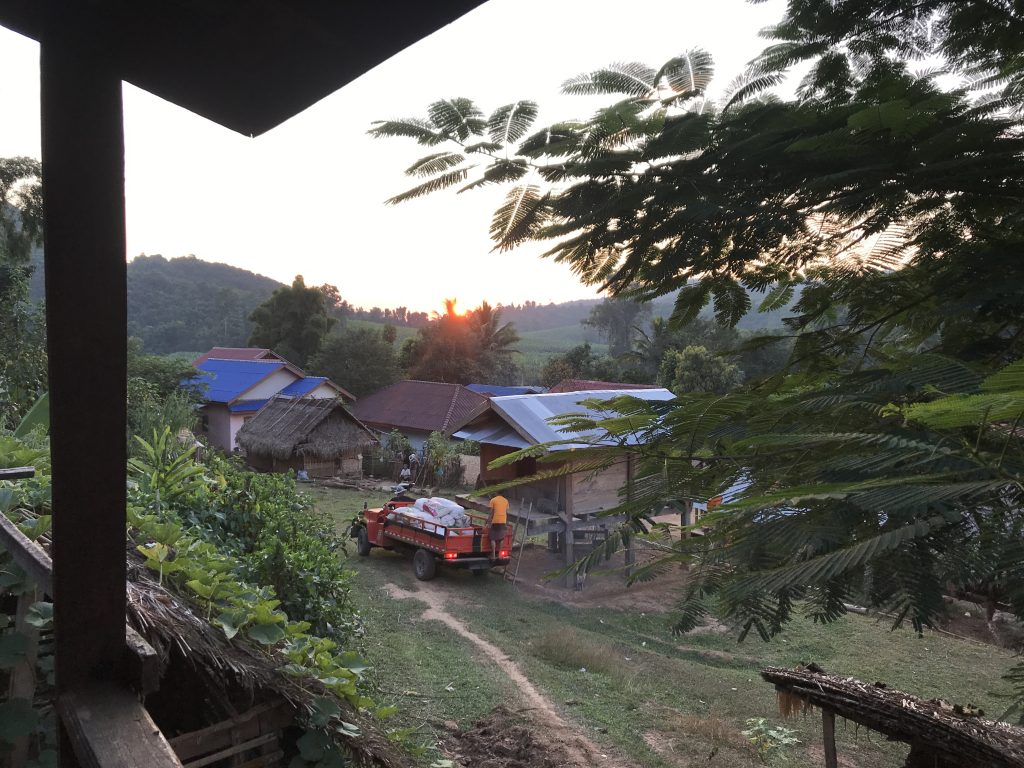
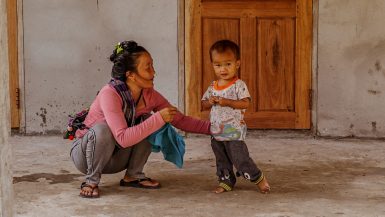
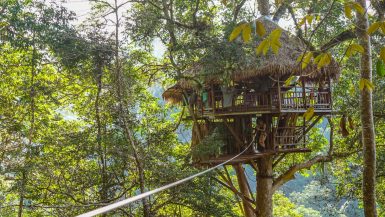
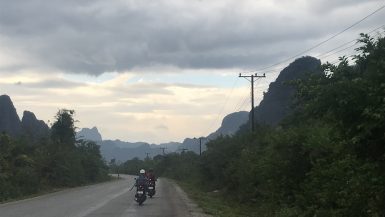
Dear Mica and Victor,
We love reading your dispatches and can tell you are having the experience of a lifetime. I do hope someone at home is printing everything so you have a book at the end of this experience.
All is well in Amsterdam. Very busy with important authors visiting and huge book fairs being organized. We had a lovely week in Greece in October and returned refreshed.
Wonderful! Thanks for reading!